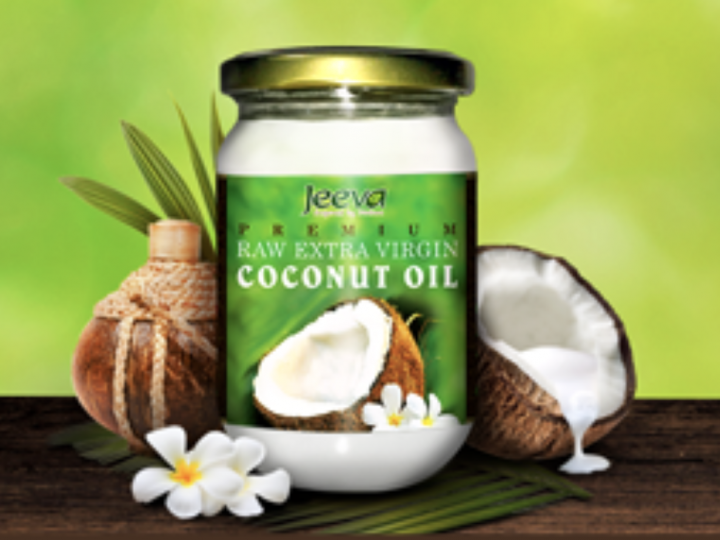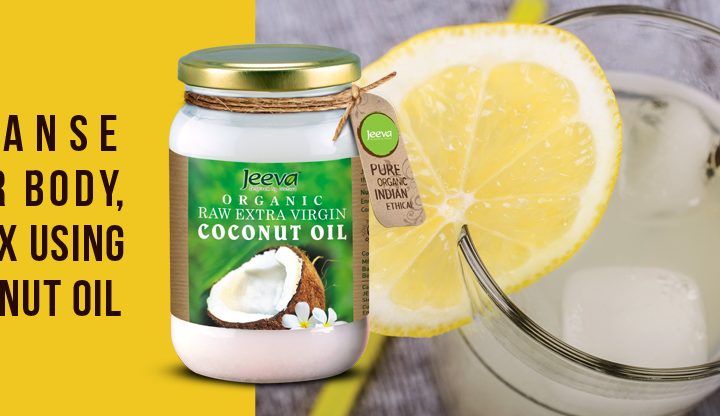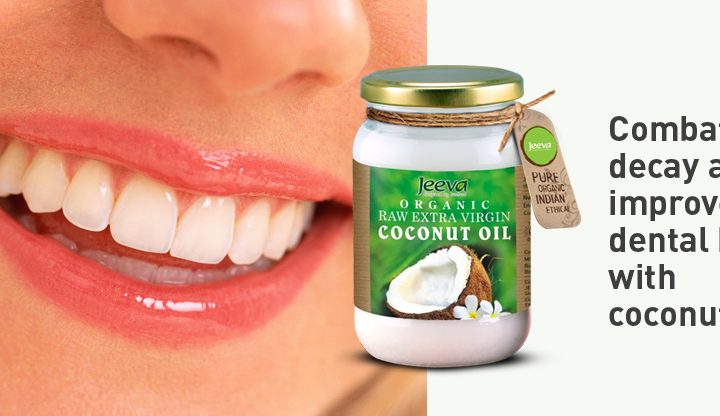
Right now oil pulling is a hot topic. Want to know where it comes from, learn about the health benefits and discover how to do it? Nutritional Therapist Nina Omotoso explains all…
Oil pulling – an ancient Ayurvedic practice
Following centuries of use as a traditional Ayurvedic health practice, Oil Pulling has certainly stood the test of time. It’s incredibly simple to do – you just swish (kavala graham) and hold (snigda gandoosha) a raw, edible oil in the mouth. Raw extra virgin coconut oil works a treat. There are many reported health benefits: ranging from fresher breath, decreased tooth sensitivity and improved oral health, to more widespread systemic improvements. Anecdotal reports suggest cardiovascular disease, diabetes, physical pain, skin problems, digestive disorders, allergy and diseases of the female reproductive system can all be alleviated through oil pulling. Far-fetched claims? Well there’s a growing body of evidence that suggests not.
Oil pulling improves oral health
Several studies infdicate that regular oil pulling can reduce gum inflammation [1], freshen breath [2] and reduce numbers of Streptococcus mutans in plaque and saliva, helping to minimise tooth decay [3]. S. mutans is one of the 3 common micro-organisms which can form a sticky surface on the teeth, encouraging the formation of biofilm, an impenetrable layer which underlies the build up of plaque and causes dental caries.
Could oil pulling benefit your whole body?
Systemic benefits are slightly harder to quantify as they seem to be based mostly on anecdotal evidence. However, if we consider the mouth as a source of microorganisms that can enter the blood stream or lymphatic system, then it’s easy to see how poor oral health and infections could result in the release of toxins which enter and circulate throughout the body with negative effects. In fact the 2009 US NHANES survey shows just this, highlighting gum disease as an important risk factor in diseases which affect the arteries and blood vessels. Oil pulling for 20 minutes a day reduces the levels of bad bacteria, helping to keep your gums healthy. No doubt some interesting studies on the impact of oil pulling on cardiovascular health are in the pipeline.
Mysterious mechanisms bring amazing benefits
Gum disease is an important risk factor in diseases which affect the arteries and blood vessels
NHANES Survey, 2009
How does oil pulling work? We’re not entirely sure but possible mechanisms include enzyme activation to draw out toxins; detoxification through anti oxidant actions; and emulsification which leaves a soapy layer preventing bacteria from sticking to the tooth surface. It might even be a combination of all of the above. Nevertheless, the results from oil pulling are impressive and just a tablespoon of coconut oil away!
10 tips for oil pulling
1) Start for just a few seconds until you get used to the sensation of holding oil in your mouth, then work up to a full twenty minutes (perhaps when you’re in the shower).
2) If you get jaw ache, you’re trying too hard – relax
3) It’s best to oil pull first thing in the morning
4) Don’t swallow the coconut oil
5) Emulsification (where the coconut oil forms a soapy film) occurs after around five minutes of oil pulling
6) Spit the oily residue into a tissue, not down the sink
7) Complete your oil pulling by brushing your teeth and rinsing thoroughly to remove any remaining oily residue
8) You can oil pull between 1 and 3 times a day – ideally before eating
9) If you don’t fancy oil pulling try rubbing coconut oil onto the teeth and gums. Studies show oil massaging is as effective as using chlorhexidine (the gold standard) when it comes to reducing plaque, gingivitis and S. mutans micro-organisms [4]
10) Always use a good quality raw coconut oil like Jeeva’s Premium Extra Virgin Oil or Jeeva’s Organic Extra Virgin Oil
References
1) Asokan et al., (2009) ‘Effect of oil pulling on plaque induced gingivitis. A randomized controlled triple blind study.’ Indian J.Dent Res;20:47-51.
2) Asokan et al., (2011) ‘Effect of oil pulling on halitosis and microorganisms causing halitosis: a randomized controlled pilot trial.’ J Indian SOC Pedod Prev Dent; 29:90-4.
3) Asokan et al., (2008) ‘Effect of oil pulling on Streptococcus mutans count in plaque and saliva using Dentocult SM strip mutans tests: A randomized controlled triple blind study.’ J Indian SOC Pedod Prev Dent;26;12-7
4) Singla et al., (2014) ‘Effect of oil gum massage therapy on common pathogenic oral microorganisms – A randomized controlled trial.’ J Indian Soc Periodontol, Jul-Aug 441–446.




